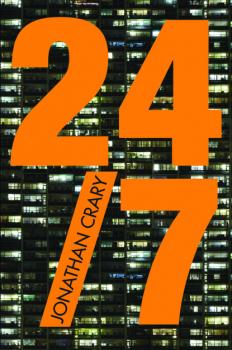Jonathan Crary
Список книг автора Jonathan Crary24/7
Die globale Infrastruktur des pausenlosen Einkaufens, Arbeitens und Kommunizierens 24 Stunden am Tag und an sieben Tagen der Woche hält mittlerweile bereits die gesamte Menschheit wach. Antischlafmittel sind das neue Lifestyleprodukt, um dauerhaft leistungsfähig zu bleiben. Der Nachthimmel ist schon längst nicht mehr dunkel. Dabei blieb der Schlaf, während die anderen Grundbedürfnisse wie Hunger, Durst und Sex schon früh finanziell ausgeschlachtet wurden, lange Zeit der einzige nicht kontrollierbare Rückzugsort vor den Zwängen des Kapitalismus. Noch vor hundert Jahren verbrachten die Menschen regelmäßig zehn Stunden schlafend. Der heute allgegenwärtige Schlafmangel ist Symptom eines beschleunigten Lebens, bei dem die persönlichen Gedanken und Gefühle an den Rand gedrängt werden. Ab ins Bett, schließt die Augen, fordert uns der Autor daher auf, damit wir uns in den Gefilden der Pause und der vermeintlichen Leere zumindest zwischendurch befreit fühlen können. Denn es ist die leere Zeit, die besonders kostbar ist.
24 / 7
Capitalism’s colonization of every hour in the day. 24/7: Late Capitalism and the Ends of Sleep explores some of the ruinous consequences of the expanding non-stop processes of twenty-first-century capitalism. The marketplace now operates through every hour of the clock, pushing us into constant activity and eroding forms of community and political expression, damaging the fabric of everyday life. Jonathan Crary examines how this interminable non-time blurs any separation between an intensified, ubiquitous consumerism and emerging strategies of control and surveillance. He describes the ongoing management of individual attentiveness and the impairment of perception within the compulsory routines of contemporary technological culture. At the same time, he shows that human sleep, as a restorative withdrawal that is intrinsically incompatible with 24/7 capitalism, points to other more formidable and collective refusals of world-destroying patterns of growth and accumulation.



